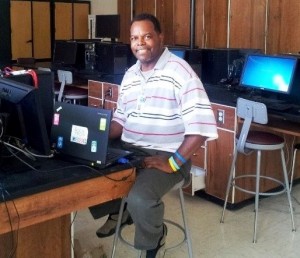(ThyBlackMan.com) The use of Social Media has grown from a communications tool used in text format to the ability to interact with anyone through email, growing to a digital and interactive platform to an entertainment platform on multimedia interaction, music and movies can be viewed with ease from a multitude of software’s, and now Social Media has the potential to be a recruitment tool with dangerous results.
The recent news report on NPR of ISIS and other extremist groups recruiting youth, teens and young adults should be another wakeup call for parents to monitor their children’s Social Media activity. Parents need to understand the dynamics and connectivity of Social Media allowing the ability to connect with individuals and groups globally. There was safety with distance at one time, but now with the Internet and the integration of Social Media platforms that have powerful tools, distance is not a protective measure.
Distance, time zones, geographic locations and even differences in language are not a hindrance to connecting with potentially dangerous groups. There are tools, Apps, translation software, devices, programs and direct interaction that can circumvent any challenge to communication. Facebook, Twitter, Instagram, Vine, Vimeo, SnapChat, Youtube are just a small part of the interactive abilities of the Internet. Each month there seems to be a new App or program that allows unlimited access to people and information.
Parents need to be educated on the interactivity and platforms of Social Media, not just to battle foreign terrorists, but domestic terrorism in the form of Bullying, Cyberbullying, Sexting and even Catfishing. Groups are applying the knowledge of technology in desktop and laptop computers, also the mobility of tablets and Smartphones. These devices have the ability in a mobile platform to allow groups to recruit and influence mentally and emotionally the decisions that youth, teens and young adults make.
Individuals and groups can develop relationships that can potentially influence the behaviors of youth, teens and young adults to disobey their parents and guardians, to go against their moral, ethical and even religious teachings and participate in potential activities of terrorism. If a parent thinks that their child will never do this they are foolish and ignorant to the power of technology and engagement through Social Media. The Social aspect of social media encourages connecting and the ability to have unlimited connectivity to anyone around the globe. The infusion of Social Media tools opens doors to levels of communication that are unpatrolled.
If the government does not monitor the content being created, parents need to monitor what comes into their homes, physically and electronically.
As an elementary school, higher education teacher and Social Media blogger I have blogged and spoken about the responsibility and accountability of parents to monitor their children’s online social life. Talking to elementary students, they present a picture that is frightening; parents are unaware of actions and behaviors in an online environment by their kids.
Girls and boys in fourth and fifth grade pretending to be in middle and high school, using language that would make a seasoned sailor blush or a porn star envy. Social Media is a mirror of our society; there are sites dedicated exclusively to illegal drugs, pedophile sites that teach how to lure children away from their parents and sites like Ask.fm that was used by three girls from Denver, Colorado and were recruited by ISIS. Parents must understand that sites are managed by individuals that study children, teens and young adults and employ tactics that entice and lure them to a sense of safety and openness.
The ease of the Internet and WIFI connections allows youth and teens to go online without guidance or training, opening digital doors to multiple influences that at one time parents would say, “my child would never do that” or “my children knows better” and even “there are no people like that where I live.”
This dangerous and ignorant way of thinking is being tested as youth, teens and young adults in the United States and other nations are influenced by elements of ISIS, religious extremists and other organizations that may glamorize violence, racism, hate, gender bias or even romanticize the efforts of projected images of liberation of people or culture through violence.
The minds and emotions of youth and teens are impulsive and easily influenced especially if youth and teens feel neglected by family. If children feel they are not important or valued, and even treated as important they will knowingly or unknowingly search for the things they feel or think they are missing. These are the same elements when youth, teens and young adults enter the world of gangs. Groups know how to build a relationship with teens and young adults, this may happen over months or years, but they do build trust and friendships.
These friendships / relationships blossom into a connection that is hard to break and creates in teens a bond that may grow to be stronger than the bond they have with their parents and family members.
The disturbing ease of access to groups that promote violence shows how the Internet can enter into homes and the lives of American families. The Internet can be absorbed into homes where the might of the American military cannot have an influence; this is the battlefield for parents and guardians. They must be vigilant and inspective of their and other children’s access to Internet resources and Social Media platforms.
Parents must on a regular timeline check Smartphones, Internet sites on laptops, tablets and other devices to see where their children are going. Parents should Google their children and their friends to keep abreast of potential activities and importantly have conversations and express parental expectations of behavior. If a parent does not take steps they may be faced with dire consequences and circumstances as the recent NPR story shares or worse.
The NPR story by Dina Temple-Raston – “ISIS Used Predatory Tools And Tactics To Convince U.S. Teens To Join” shows the ease and the complexity in recruiting teens. Parents must have conversations with their children about their online activities because their lives are literally in danger using Social Media.
Staff Writer; William D. Jackson
Find out more about this talented writer over at; OCS For Education.




















Thank you very much….
Nice piece Brother!